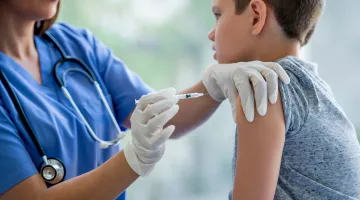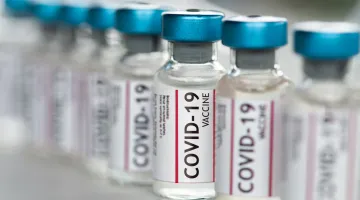COVID-19 and Plasma Donation: How Recovered Patients Can Help
Author

Kim Dever, MD
Throughout the COVID-19 pandemic, we’ve all been inspired by the community’s willingness to help and to come together for the greater good.
Whether it’s sending meals to healthcare workers or donating personal protective equipment, the support of the community has helped us all navigate these unprecedented times.
While we’re beginning to see what we hope is a flattening of the curve, another opportunity to help has presented itself: a potential gift of recovery in the form of plasma donation.
As the medical community has learned more about COVID-19, evidence has shown that plasma therapy can be effective.
This means that patients with COVID-19 may benefit from convalescent plasma donated by patients who have fully recovered from the illness.
What is convalescent plasma?
Convalescent plasma is, essentially, healing blood fluid.
Plasma is the liquid part of your blood, outside of the red and white blood cells. Plasma donations are already widely used to treat a number of illnesses, including autoimmune disorders.
Patients recovering from an illness may develop strong antibodies against future illness.
Those antibodies then circulate in the fluid surrounding the blood cells.
In this case, the plasma of patients who have recovered from COVID-19 may contain antibodies that can help others fight the virus.
What is it like to donate plasma?
If you’ve ever donated blood, the process of donating plasma is very similar.
Blood is drawn through a vein in your arm, and that blood then goes into a machine that separates the plasma from the blood. The blood is then returned to your body.
The entire process normally takes a couple of hours, depending on the patient’s weight and level of hydration.
You can learn more about the process on the Donating Plasma website.
When can recovered COVID-19 patients donate plasma?
For patients recovering from COVID-19, the most important thing is to regain strength and focus on feeling better.
With that in mind, there are guidelines around when patients will be able to donate.
Patients must be without symptoms for 14 days prior to donating plasma.
A prior COVID-19 diagnosis, documented by a lab test, is required as well.
Patients must also be over the age of 17, weigh a minimum of 110 pounds, and meet other common blood or plasma donor criteria.
How can COVID-19 patients donate plasma?
The American Red Cross has dedicated donation locations across the area. Appointments for COVID-19 plasma donation must be scheduled online.
For more information or to find the donation location closest to you, please visit the Red Cross website.
Can I still donate plasma if I didn’t have COVID-19?
Of course! While your plasma won’t be used specifically to help treat patients with COVID-19, donating plasma or blood are great ways to give the gift of life to other patients in need.
Plasma and blood donations save lives on a daily basis. If you’re healthy and able to donate, please consider finding the blood donation center closest to you.
Kimberly Dever, MD, is Vice President of Medical Affairs at South Shore Health
Author

Kim Dever, MD






